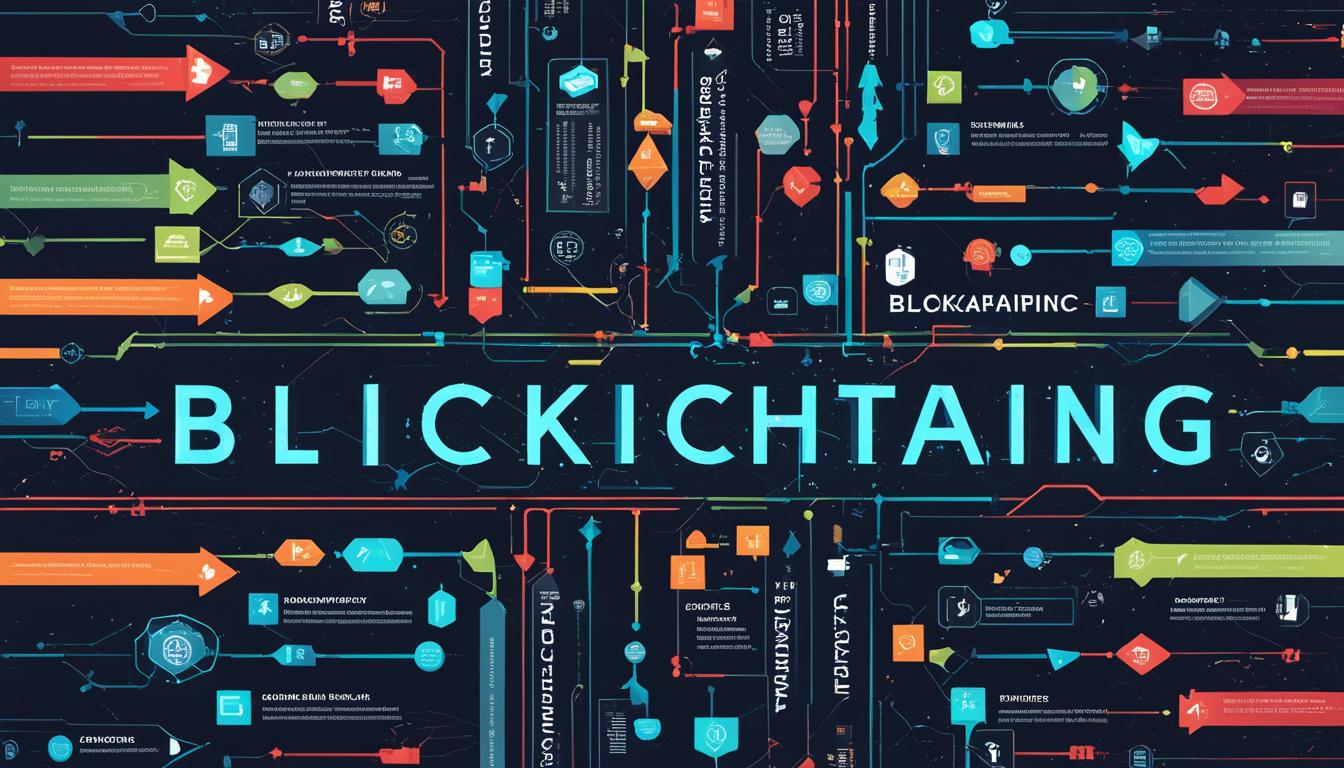Blockchain technology is rapidly evolving and disrupting traditional business models across various industries globally. The evolution of commerce and the adoption of blockchain solutions are creating new opportunities for innovation. According to Deloitte’s 2019 Global Blockchain Survey, emerging disruptors are driving blockchain adoption, with 45% of them having already brought blockchain to production. Legacy organizations are also recognizing the potential of blockchain technology, albeit at a slower pace. The future of blockchain trends is promising, with blockchain-enabled business models presenting a seismic shift in how business is conducted. Navigating the complexities, such as regulatory considerations and technological challenges, is crucial for the successful implementation of blockchain solutions. Overall, the future of blockchain innovation holds immense potential for transforming industries and revolutionizing the way we conduct commerce.
Key Takeaways:
- Blockchain technology is disrupting traditional business models across industries.
- Emerging disruptors are leading the adoption of blockchain solutions.
- Legacy organizations are slowly recognizing the potential of blockchain technology.
- Navigating regulatory considerations and technological challenges is crucial for successful blockchain implementation.
- The future of blockchain holds immense potential for transforming industries.
Conclusion
The future of blockchain technology is incredibly promising, with a projected market size of USD 163.83 billion by 2029. The rapid adoption of blockchain across various industries can be attributed to its numerous benefits, including increased efficiency, transparency, security, and reduced costs. These advantages have propelled blockchain technology into the spotlight and positioned it as a game-changer in the world of digital commerce.
Blockchain’s potential applications are vast and span across multiple sectors. In finance, blockchain has the power to revolutionize traditional processes, enabling faster and more secure transactions. In cybersecurity, the decentralized nature of blockchain adds an extra layer of protection against cyber threats. The technology also holds immense potential for cloud storage, IoT, and digital advertising, paving the way for innovative solutions and new business models.
As blockchain continues to mature and gain widespread acceptance, it is expected to become an essential foundation for a multitude of applications and services. Its seamless integration into everyday life will transform it into a trusted and widely used technology. This journey towards blockchain’s future is marked by continuous advancements, regulatory considerations, and the emergence of new business models. With the evolution of technology, blockchain has the potential to reshape industries, enhance security, and empower individuals and businesses alike.
Embracing blockchain technology and its many benefits is a crucial step for organizations looking to stay competitive in the digital age. The adoption of blockchain will not only increase operational efficiency but also unlock new opportunities for growth and innovation. By leveraging its transformative power, businesses can position themselves at the forefront of technological advancements and ensure a thriving future in the ever-changing landscape of commerce.
FAQ
What is blockchain technology?
Blockchain technology is a decentralized and transparent digital ledger that records transactions across multiple computers. It is best known as the underlying technology behind cryptocurrencies like Bitcoin, but its applications extend beyond digital currencies.
How is blockchain technology disrupting traditional business models?
Blockchain technology is disrupting traditional business models by offering increased transparency, security, and efficiency. It eliminates the need for intermediaries, reduces costs, and enables innovative applications like decentralized finance, smart contracts, and the digitization of assets.
What are some use cases for blockchain technology?
Blockchain technology has various use cases across industries. Some prominent examples include decentralized finance (DeFi), enabling financial services without intermediaries; smart contracts, which automate and secure contract execution, and the digitization of assets, allowing for ownership, transfer, and trading of digital representations of physical assets.
How will blockchain technology impact industries?
Blockchain technology has the potential to revolutionize industries by improving efficiency, transparency, security, and reducing costs. It can transform finance, supply chain management, healthcare, and more by streamlining processes, enhancing data integrity, and enabling new business models.
What is the future of blockchain innovation?
The future of blockchain innovation is promising, with a projected market size of USD 163.83 billion by 2029. Blockchain’s benefits and versatility make it an essential foundation for transformative applications and services. Its seamless integration into everyday life can reshape industries, enhance security, and empower individuals and businesses.
Source Links
- https://kriptomat.io/blockchain/future-of-blockchain/
- https://www2.deloitte.com/us/en/pages/consulting/articles/future-of-blockchain.html
- https://www.knowledgehut.com/blog/blockchain/blockchain-future
- Regulatory and Compliance: Pioneering the Future of Saudi Arabia’s Dedicated Cargo Airline - December 21, 2024
- Financial Strategies: Fueling the Growth of Saudi Arabia’s Dedicated Cargo Airline - December 20, 2024
- Operational Excellence: Ensuring Competitive Edge for Saudi Arabia’s Dedicated Cargo Airline - December 19, 2024






